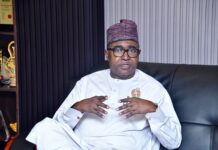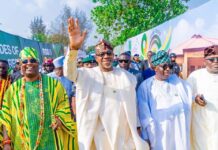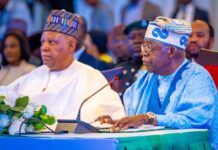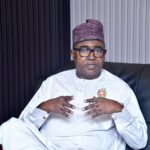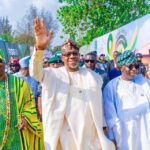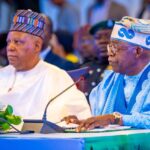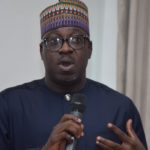In Nigeria, a nation teeming with vitality and ambition, the youth represent not only the future but also the driving force for progress and change. With over 60% of its population under the age of 30, Nigeria boasts one of the largest youth demographics globally. However, despite their numerical strength, young Nigerians have long faced barriers to meaningful participation in politics. This feature story delves into the importance of youth inclusion in Nigerian politics, exploring the challenges they encounter, the opportunities for empowerment, and the transformative benefits for the nation’s development.
In bustling cities and remote villages across Nigeria, young people are eager to make their mark on the political landscape. Yet, they often find themselves excluded from decision-making processes, marginalized by entrenched elites, and constrained by systemic barriers. For many young Nigerians, the desire to participate in politics stems from a deep-seated aspiration to shape their country’s future, address pressing social issues, and unlock opportunities for themselves and future generations.
Despite their enthusiasm and potential, young Nigerians face numerous challenges in navigating the political terrain. Structural obstacles, such as limited access to political structures and financial constraints, pose significant hurdles to their participation. Additionally, age restrictions, political violence, and intimidation further impede their aspirations, stifling their voices and dampening their hopes for meaningful engagement.
Amidst the barriers and obstacles, there lies a promise of transformation and progress through youth inclusion in Nigerian politics. Empowering young people to take active roles in governance yields multifaceted benefits that extend far beyond individual aspirations. From fostering innovation and diversity to promoting accountability and sustainability, youth inclusion holds the key to unlocking Nigeria’s vast potential and steering the nation towards a brighter future.
Young Nigerians bring fresh perspectives, innovative ideas, and creative solutions to the table, injecting dynamism and vitality into the political discourse. Their tech-savvy mindset and entrepreneurial spirit pave the way for digital innovation, social entrepreneurship, and grassroots activism, driving positive change in governance and policy-making.
Youth inclusion enhances the representativeness and diversity of Nigeria’s political institutions, ensuring that the voices, interests, and concerns of young Nigerians are heard and addressed. By amplifying the voices of marginalized groups and underrepresented communities, youth participation fosters a more inclusive and pluralistic democracy, where every citizen has a seat at the table.
The active involvement of young people in politics promotes greater accountability, transparency, and responsiveness among elected officials and government institutions. With their penchant for social media activism and digital advocacy, young Nigerians hold leaders accountable for their actions, demand good governance, and champion transparency in decision-making processes.
Youth inclusion fosters social cohesion, national unity, and intergenerational solidarity, bridging divides and forging common bonds among diverse communities. As young people feel a sense of ownership and belonging in the political process, they become catalysts for social change, driving collective action and mobilizing grassroots movements for positive transformation.
Engaging young people in politics facilitates the formulation and implementation of policies and programs that prioritize long-term sustainable development, environmental stewardship, and social justice. With their energy, enthusiasm, and commitment to social causes, young Nigerians champion initiatives that address poverty, inequality, climate change, and other pressing challenges facing the nation.
To realize the promise of youth inclusion in Nigerian politics, concerted efforts are needed from various stakeholders, including government, political parties, civil society organizations, and the private sector. By investing in political education, mentorship programs, and capacity-building initiatives, Nigeria can empower young people to become active agents of change and catalysts for progress.
Youth inclusion in Nigerian politics is not merely a matter of democratic principle but a pragmatic imperative for sustainable development, social justice, and national progress. By unlocking the transformative potential of its youth, Nigeria can harness their energy, creativity, and talent to overcome challenges, seize opportunities, and build a more inclusive and prosperous future for all its citizens. Through collaborative efforts and sustained commitment, Nigeria can empower tomorrow’s leaders today, ensuring that the voices of its youth resonate loud and clear in the halls of power and the corridors of decision-making.
- Prince Adekunle Oyedepo, Founder of The Adekunle Oyedepo Foundation writes from the United Kingdom.






